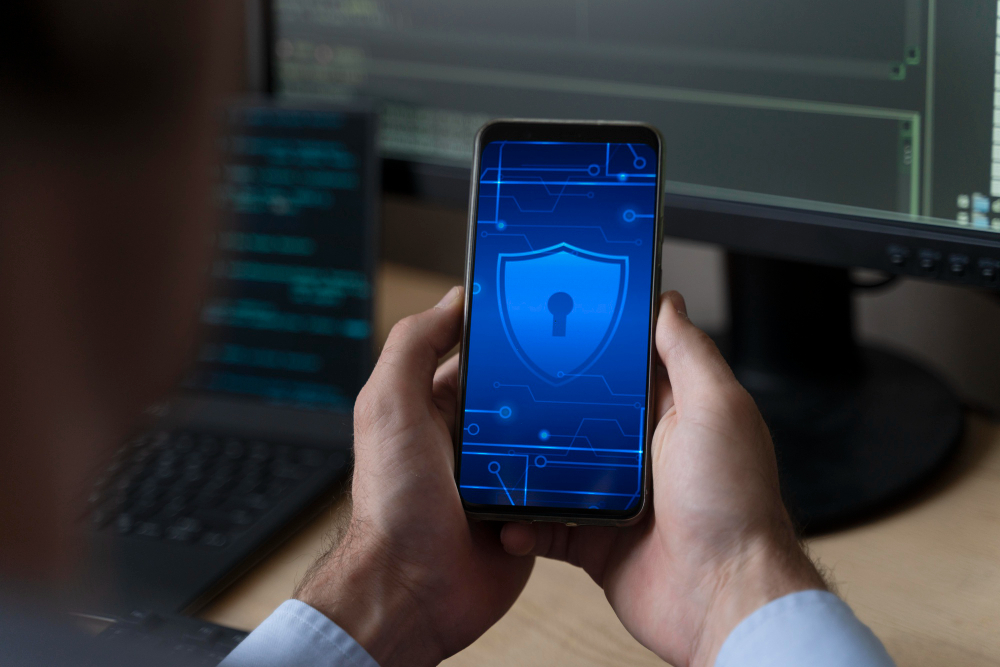The KYC process is key for financial firms and businesses. It protects against fraud, money laundering, and identity theft. Traditional KYC processes typically involved personal interviews, paperwork, and long waiting periods
With technology, KYC through video calls is a game-changer. It offers a quick, easy, and safe way to verify a customer's identity.
The Evolution of KYC
The KYC process began in banking. It's crucial to verify a customer's identity. Originally, customers had to visit a branch. They had to present their documents for identity verification and fill out forms.
This process is effective. But, it is slow and inconvenient for both customers and banks. Then came the digital era. It started online KYC using scanned documents submitted by customers.
It was more convenient, but it had challenges. These included document forgery and real-time interaction.

Rise of Video KYC
Video KYC uses video conferencing to authenticate customer identities in real-time. This process combines the ease of digital processes with the realness of face-to-face interactions. Typically, a customer would book a video call with a KYC agent.
They must show their ID documents and answer security questions. An agent live-authenticates documents with customers. This ensures maximum security and high trust in the process.

Advantages of Video Call KYC
How OCR Works
OCR, or Optical Character Recognition, is a technology. It converts scanned papers, PDFs, and photos into editable, searchable data. It finds and extracts text from images. It uses pattern recognition and machine learning.
Enhanced Security
One of the main advantages of video KYC is an increased level of security. Standard online KYC processes are weak in front of document forgery and identity theft. In contrast, video KYC allows the customer's identity to be verified in real-time by the agents.
Therefore, this process has the checkmate for fraudulent activities. Also, live interactions let agents ask questions. They can observe the customer for further verification.
Customer Experience Enhancement
Video KYC improves customer experience. It offers a very easy, quick verification process. Customers will now no longer be required to visit the branch or wait for days with their documents undergoing the process. He can simply do it from home or the office at a time that is convenient for him.
This way, not only will the satisfaction of the customers increase, but drop-off rates during onboarding will also decrease.
Cost-Effectiveness
For banks and businesses, video KYC can be cheaper than the old way. It cuts costs by reducing the need for physical infrastructure and paperwork.
It allows organizations to have economies of operational expenses. Also, faster verification means faster onboarding for customers. This creates more revenue opportunities.
Regulatory Compliance
Video KYC is a solution that ensures compliance across multiple jurisdictions. It gives companies a choice for KYC and AML compliance. Various regulators, valuing video KYC's efficiency and security, allow its use. It won't cause non-compliance.
Global Reach
As nations' borders blur and markets globalize, businesses can serve customers anywhere. They are no longer limited by geography. Video KYC lets institutions verify customer identities from anywhere in the world.
Indeed, there are global benefits for companies that serve a global clientele. This applies to fintech, internet retailing, and other digital-first businesses.
Challenges and Considerations
While video KYC has many benefits, it does bring its own sets of problems. Institutions must deal with them to ensure a safe, smooth verification.
Technical Difficulties
Video KYC works well with a perfect, consistent connection. It also needs strong, reliable video conferencing technology. Weak internet, software bugs, and hardware limits can annoy clients. They can ruin the process.
Privacy Concerns
Privacy is a major concern in any digital interaction. A customer is unlikely to feel comfortable sharing personal info over a video call. An institution must ensure that video KYC processes are safe and secure. They must be encrypted and comply with data protection laws like the GDPR.
Training and Experience
This is where trained agents would come in. They would have the skills to verify identities and detect behaviors during video KYC. Institutions must train their staff to handle video calls. They should also recognize forged documents while keeping a professional demeanor.
Integration with existing Systems
Integrating video KYC in institutions with existing KYC processes will be hard. It must work seamlessly with CRM, document management, and all backend processes. It must also ensure a smooth workflow.
The Future of Video KYC
The present security levels with video KYC can be enhanced by AI-powered facial recognition. Even better, AI with machine learning will fix video KYC's inefficiencies. It will make it very accurate and efficient.
Further, adoption of blockchain could severely disrupt the way identity is verified and stored. Also, blockchain's decentralization and immutability provide secure, authentic KYC data. It reduces data breaches and fraud risks.
Data Extraction Process
The API scans the Emirates ID and uses OCR to extract data from various fields, such as the name, ID number, and date of birth. This data is then formatted and made available for use in different applications.
Case Studies Proving the Success of Implementing Video KYC
Fintech firms
Many fintech firms have found success in using video KYC. It helps speed up customer onboarding.
For example, a top Indian digital bank began video KYC for onboarding customers when COVID-19 started. This let the customer complete KYC checks from home. It caused a big rise in new account openings.
Insurance Providers
Insurance companies have adopted Video KYC to verify policyholders' identities and prevent fraud. An agent can video call the customer to verify the policy buyer's identity.
E-Commerce Platforms
E-commerce platforms are using video KYC to verify their sellers. This will reduce counterfeit products. Video calling the seller would ensure that the product being listed is authentic and the seller is legit.
Conclusion
Video KYC is revolutionizing the way businesses confirm customer identity in a virtual world, just through a video call. It combines digital processes with a personal touch and face-to-face interaction. This helps companies improve security, customer experience, and cost-efficiency. AI, blockchain, and other tech advances suggest a bright future for video KYC.
As more businesses embrace digital transformation, Video KYC is vital. It enables easy, safe customer identification. Video KYC will be the new normal. It applies to fintechs onboarding customers, insurers verifying policyholders, and e-commerce sites vetting sellers
By adopting video KYC, businesses can get ahead of the curve. They can then meet compliance requirements and build customer trust and loyalty.